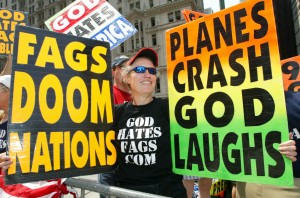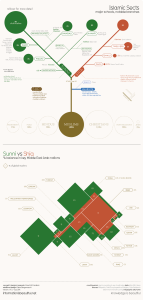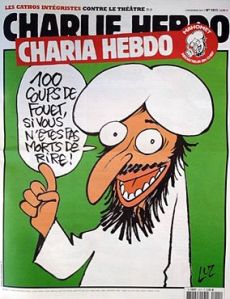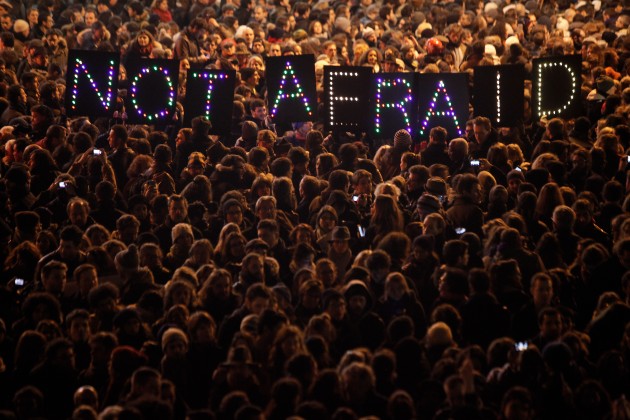Friday 16 January 2015
James [Fenton] was unable to forget the embarrassment of an undergraduate dinner with [George] Steiner, in which he had overdone his own insouciance and had too languidly said that there were no great unifying causes left anymore: no grand subject of the sort that had sent Auden to Spain or China. Steiner had snapped at this Fentonian display of the blasé and told him to take a hard look at what seemed to be happening in Vietnam.
– Christopher Hitchens, Hitch 22: A Memoir
Having studied the 1960s I have often wondered what it was like to be involved in an honourable struggle like the discussion over the morally corrupt Vietnam War. The quote – which describes a dinner in the late 1960s (probably ‘67 or ‘68) – highlights that everyone is liable to nostalgic tendencies, even as great a poet as James Fenton. Current events are difficult to string into a coherent narrative, they move by at the pace of life. We get drawn into idolising the past and we cannot see the wood from the trees. It has only been in the week after the attacks in France that I’ve come to understand what has been staring me in the face since my mother asked me to turn over to CNN on 11 September 2001. The major ideological battle of our age is the one concerning militant Islamofascism. The irony is that we – the West – are not one of the prizefighters in the ring, we have a ringside seat and sometimes the fight spills over and continues on our lap.
I’ve been a critic of religion for a while and an atheist for longer, but it’s only in the last year or so when I have started to consider the psychological aspect of faith. Human beings want to think in binary. By this I mean that in an attempt to understand events and their root causes we love to think that someone is certainly, or certainly not, something – an idea, a belief, a reason. That person is either a racist, or they are not. The Columbine massacre happened because of video games, or it had nothing to do with video games. The Kouachis butchered the staff of Charlie Hebdo because they are Muslims, or their faith had nothing to do with it. It was to do with immigration, or it was not. It was the West’s foreign policy, or France’s history of colonialism, or because they were crazy. Expecting one simple answer to be one hundred per cent correct is an elementary mistake and one of which we need to rid ourselves. Sometimes A happened because of B, but more often than not A happened because of a mix of parts of B, C, D, and E. To some this may be a truism, but from the last week of coverage vast swathes of our media and many of the most important politicians think otherwise.
 The ‘à la carte’ nature of modern religion is an example of this. Christianity has a central core of beliefs which are followed by all variants of the faith (e.g. that Jesus Christ was the son of God). Outside of the core there is the Bible, Christianity’s holy text, which contains some beautifully written sections, but it also has depraved lines, passages and books. To name but a few: homosexuality is an abomination, slavery is common place, rape is a way to pick a wife, genocide is divinely mandated, and women are fundamentally inferior to men. Must one give credence to all of these concepts to be a Christian? No, mainstream Christianity has moved away from the majority of these repugnant ideas. If a man in holy orders were to state that God hates homosexuals, however, they would be correct because the Bible says God hates homosexuals. Any argument against this statement would not come from the Christian faith. This passage has not been struck out, but it is routinely ignored. Who’s to say that the liberal Christian is more of a Christian than the literal homosexual hating Christian? Both are Christians and neither speaks for the whole of their religious faith. One interpretation has more subscribers than the other, but both represent separate sides of a pretty serious division within their religion. Biblical literalism is an ongoing problem. Personally, I could not be more in favour of loose readings of holy books (so loose, in fact, that they aren’t even open).
The ‘à la carte’ nature of modern religion is an example of this. Christianity has a central core of beliefs which are followed by all variants of the faith (e.g. that Jesus Christ was the son of God). Outside of the core there is the Bible, Christianity’s holy text, which contains some beautifully written sections, but it also has depraved lines, passages and books. To name but a few: homosexuality is an abomination, slavery is common place, rape is a way to pick a wife, genocide is divinely mandated, and women are fundamentally inferior to men. Must one give credence to all of these concepts to be a Christian? No, mainstream Christianity has moved away from the majority of these repugnant ideas. If a man in holy orders were to state that God hates homosexuals, however, they would be correct because the Bible says God hates homosexuals. Any argument against this statement would not come from the Christian faith. This passage has not been struck out, but it is routinely ignored. Who’s to say that the liberal Christian is more of a Christian than the literal homosexual hating Christian? Both are Christians and neither speaks for the whole of their religious faith. One interpretation has more subscribers than the other, but both represent separate sides of a pretty serious division within their religion. Biblical literalism is an ongoing problem. Personally, I could not be more in favour of loose readings of holy books (so loose, in fact, that they aren’t even open).
In the aftermath of the attacks in France we have heard both extremes of a binary story. We have been told that these men do not speak for Islam, that they have damaged the religion, and that they were not Muslims in any sense of the word. Others have said that they are typical Muslims, that this was the true face of evil Islam, the fifth column inside Europe waiting to destroy our civilisation. To take either of these positions is to misunderstand Islam. Like Christianity, there are a core set of beliefs and practices which all Muslims hold dear. And, like Christianity, there are liberals and there are puritanical literalists who believe that some parts of the Koran and certain Hadith are more important than others. Both are Islam. Undoubtedly Saïd Kouachi, Chérif Kouachi, and Amedy Coulibaly were all Muslims. They spoke for a subsection of Islam – Jihadism. To listen to those who say that they were not true Muslims is akin to stating that Catholics are not really Christians.

Islam has two major branches (the Sunni and the Shia), and those branches split into schools, which in turn can divide into movements. Jihadism is a movement out of Salafism, a subsection of the Hanbali school which has its origins in Sunni Islam. Jihadism is not a peaceful movement. I wish I didn’t have to type that, but I feel I have to because “Islam is a religion of peace” is being repeated again and again by those in power. This subdivision of Islam is not peaceful. Let me repeat that so that I am wholly understood: Jihadism is not peaceful. Islam has extremists, conservatives, moderates and liberals, like every other religion. Jihadism stands ululating at the violent extreme of the scale. Now, once again, to amplify what I am saying and what I am not: Islam is not a religion of peace; it is also not a religion of war as some English Defence League bigots would have us believe. The majority of Islam is peaceful, certain subsections are not. While these violent elements continue it is not possible to call Islam a religion of peace.
Nobody speaks for the whole of Islam, just their chosen interpretation. That goes for everybody: extremist, conservative, moderate and liberal. Furthermore, the actions of the Kouachis and Coulibaly were a direct result of the teachings of Salafi Jihadist Islam. Not in the name of, but as a direct result of the preaching of a very extreme and absolutist subsection of Islam. In the same way as some of those who voted against same-sex marriage did so because of a fealty to their version of Christianity, these men carried out these attacks in part because they believed themselves to be doing the work of God. As the Nobel Prize winning American physicist Steven Weinberg said:
Many people do simply awful things out of sincere religious belief… because they believe that this is what God wants them to do, going all the way back to Abraham being willing to sacrifice Isaac because God told him to do that. Putting God ahead of humanity is a terrible thing.
Devotion to Salafi Jihadist Islam will be in large part the reason why these men decided to kill those who they believed had insulted their Prophet. It will not have been religion one hundred per cent, to believe so is to capitulate to binary thought and would not explain why it was these men and not other Salafi Jihadists, but to deny that it played a role and claim that they were really lashing out because of, say, Western imperialism is akin to burying ones head in the sand. Radicalisation is an ongoing problem in both French and British society. We need to address what faces young Muslims and why some are being radicalised. I’ll go into this in greater detail next time, for now bear in mind that there is an ongoing ideological war within Islam between extremists and moderates. Terrorist attacks which take place in the West are mostly an attempt by extremists to attract other Muslims to their side. For us in the self-centred West it is difficult to understand this. As I said, I will explain further in my next entry, but for the rest of this piece I wish to address the discussion held by the media about freedom of expression over the last week.
Some have posited that, in some way, the fate of the staff of Charlie Hebdo was inevitable because their caricatures of the Prophet Muhammad were racist. Asghar Bukhari, a founding member of the Muslim Public Affairs Committee UK (MPACUK), took a similar line during a debate on Sky News the day after the shootings. Bukhari opened by saying that “the images that they are actually drawing of Muslims and of the Prophet himself are racist. It’s like drawing a black person as a zoo animal or a Jew as an evil banker.” A week later Catherine Heseltine, another MPACUK member and former CEO, appeared on Channel 4 News and said “This magazine was pedalling a racism against the Muslim community, dehumanising a powerless and discriminated against group in a way that stokes the Islamophobia and the violence, in turn, that Muslims are suffering.”
Simply put there is only one race: the human race. Humanity is not subdivided into different races. There are different ethnicities, but not different races. Whatever your ethnicity, you and I are both human underneath. (Incidentally, this is why I dislike ‘racism’ as a term – it leads to people using the word ‘race’ to describe different ethnicities.) I actually think that the definition of a racist is someone who believes humanity is partitioned into different races. Regardless of what I think, in modern parlance racism is “a belief that race is the primary determinant of human traits and capacities and that racial differences produce an inherent superiority of a particular race.” In the media there appears to be some confusion over whether Islam is a race. My favourite, ludicrous, example is from Big Think where David Ropeik, who also thinks religion had nothing to do with the attacks, wrote:
It was not being German that led Adolph Hitler (born in Austria) to form the National Socialist German Workers Party and in the name of a national tribe commit some of the most atrocious crimes against humanity the species has ever suffered.
Well, quite. However, Hitler did not form the National Socialist German Workers’ Party, Anton Drexler did, and the comparison is nonsensical. Islam is not an ethnicity/race because converting to or leaving Islam is a choice. One cannot choose to change their ethnicity, but they can choose to change their religion. The caricatures of the Prophet Muhammad were not racist because they were a critique of an idea, not an assault upon a people. Here is one of the cartoons in question:

See? Not racist. Islam has followers on all the major continents who all share the same core beliefs of Islam and they are not all of the same ethnicity. Once again, it is a belief, not an ethnicity. It goes without saying, therefore, that the asinine comparison between the caricatures and antisemitic or racist cartoons is spurious. One is racial prejudice; the other is criticism of a belief system. No belief system is above criticism and, in fact, all should welcome it because it is always a good idea to question why one believes something and to re-establish first principles. The axiomatic insecurity of religion is highlighted by the need to refuse questions about its foundations. (Strangely enough the prohibition of caricatures of the Prophet Muhammad was a good idea initially because it rejected idolatry. However, as time has worn on, the prohibition has itself become a form of idolisation. One can name a person Muhammad – Atta, for example – without uproar, but drawing a picture of the Prophet is condemned.)
Similar to the concept that these cartoons were racist is the question along the lines of “why are cartoonists allowed to draw the Prophet Muhammad, but not a picture questioning the Holocaust?” (see Channel 4 News, Al Jazeera) This is, also, asinine as it is an idea played up against a historical fact. Simply put, the Holocaust is verifiable and provable; that Muhammad had the Koran dictated to him by the Archangel Gabriel is not. The implication is that if probing the Holocaust is not legal, then the Prophet should not be allowed to be questioned either. There are two points here:
- Laws banning the questioning of the veracity of the Holocaust oppose the freedom of expression. The French law – the 1990 Gayssot Act – is wrong and should be repealed.
- It should be plain with the evidence we have that Muhammad is technically on the side of the Holocaust deniers. That is to say, there is as much evidence pointing towards him having heard those voices as there is that Auschwitz was a Jewish holiday camp.
People actually spend their lives trying to prove the conspiracy theory that the Holocaust never happened, which is an improvement upon taking it as read that Muhammad was a prophet. Also, there is not a single country in which one would be killed for saying that the Holocaust never happened, but there are still countries where if you leave Islam – commit the alleged sin of apostasy – you will be executed. The comparison between questioning the Holocaust and caricaturing Muhammad is a poor one – six million dead human beings played off against, maybe, a blunt pencil.
 When neither of these two approaches have been chosen, the line becomes: while it is okay to caricaturise the Prophet because of free speech, Charlie Hebdo was a rather nasty magazine which created racist cartoons and gave fuel to the French far-right (see Irvine Welsh on Channel 4 News, Mehdi Hasan in the New Statesman). I plead a Wittgensteinian defence on my knowledge of French culture, however I have read articles by people who know far more about France than I do who say that Charlie Hebdo mock racist attitudes, rather than incite them. To me, that sounds plausible when one considers that Charlie Hebdo is a left-wing magazine. If one knew nothing about American culture, or did not share the cultural similarities with the United States that we do, then upon viewing South Park for the first time one could infer that Trey Parker and Matt Stone are bigoted racists. The show draws and plays upon existing prejudices in an overt manner which to the uninitiated would appear incriminating. Until proven otherwise, I feel that I should give Charlie Hebdo the benefit of the doubt that I would want others to give South Park.
When neither of these two approaches have been chosen, the line becomes: while it is okay to caricaturise the Prophet because of free speech, Charlie Hebdo was a rather nasty magazine which created racist cartoons and gave fuel to the French far-right (see Irvine Welsh on Channel 4 News, Mehdi Hasan in the New Statesman). I plead a Wittgensteinian defence on my knowledge of French culture, however I have read articles by people who know far more about France than I do who say that Charlie Hebdo mock racist attitudes, rather than incite them. To me, that sounds plausible when one considers that Charlie Hebdo is a left-wing magazine. If one knew nothing about American culture, or did not share the cultural similarities with the United States that we do, then upon viewing South Park for the first time one could infer that Trey Parker and Matt Stone are bigoted racists. The show draws and plays upon existing prejudices in an overt manner which to the uninitiated would appear incriminating. Until proven otherwise, I feel that I should give Charlie Hebdo the benefit of the doubt that I would want others to give South Park.
Nonetheless, let us play devil’s advocate for a moment: imagine that it has been proved conclusively that Charlie Hebdo is a racist magazine, does it matter? Not in the slightest, even if it is a racist publication it still has the right to publish. As per Salman Rushdie: “What is freedom of expression? Without the freedom to offend, it ceases to exist.” People have the right to place their thoughts into the public sphere and everyone else has the right to test their own arguments against them. The late Carl Sagan wrote that “the cure for a fallacious argument is a better argument, not the suppression of ideas.” Freedom of expression gives people the right to learn and investigate for themselves. Democratic societies need freedom of expression, otherwise the society is neither democratic nor free. Taking offense does not equate to the need to censor.
The final chosen path of argument was one of self-censorship. Both Sky News and al Jazeera said they would not show the cartoons because they did not want to offend anyone. If that is true, then it’s sad. I would prefer to think that both were afraid of inciting a lynch mob. The pinnacle was on Channel 4 News when The Guardian cartoonist Martin Rowson and novelist Will Self discussed self-censorship. Rowson, who had appeared on numerous networks discussing the tragedy, admitted that he does occasionally self-censor because the publications he works for will not print certain images. Furthermore, he said that during the controversy over cartoons depicting Muhammad in the centre-right Danish newspaper Jyllands-Posten in 2005 he did publish a cartoon depicting the prophet.
Will Self then put forward his view that “free speech comes with responsibilities… [the notion that] freedom of speech is some absolute right… is exactly the same as a religious point of view, interestingly. It places the ethics – human ethics – outside of human society… and that’s not the case. All rights have to be counted with responsibilities.” He also said that satire has to target the powerful and that Islamic terrorists “are not in power in our society”. While I disagree with him about his unspoken undertone, he has a right to say it and I am glad that he did not censor himself. Self-censorship is fine, I have no disagreement with the concept, just so long as people do not mind saying that they are censoring themselves because they are afraid of the consequences. Also, applying self-censorship does not mean that others should do the same. Will Self is correct: free speech comes with responsibilities, the greatest of which is to make sure it is unimpeded. Free speech has to be absolute and it must – must – include the right to offend. To, again, quote Rushdie – he has some experience of people trying to kill him for writing a novel, so I think quoting him twice is acceptable – “Both John F. Kennedy and Nelson Mandela use the same three-word phrase which in my mind says it all, which is, ‘Freedom is indivisible,’… You can’t slice it up otherwise it ceases to be freedom. You can dislike Charlie Hebdo… But the fact that you dislike them has nothing to do with their right to speak.” I cannot finish on a higher note than that.
